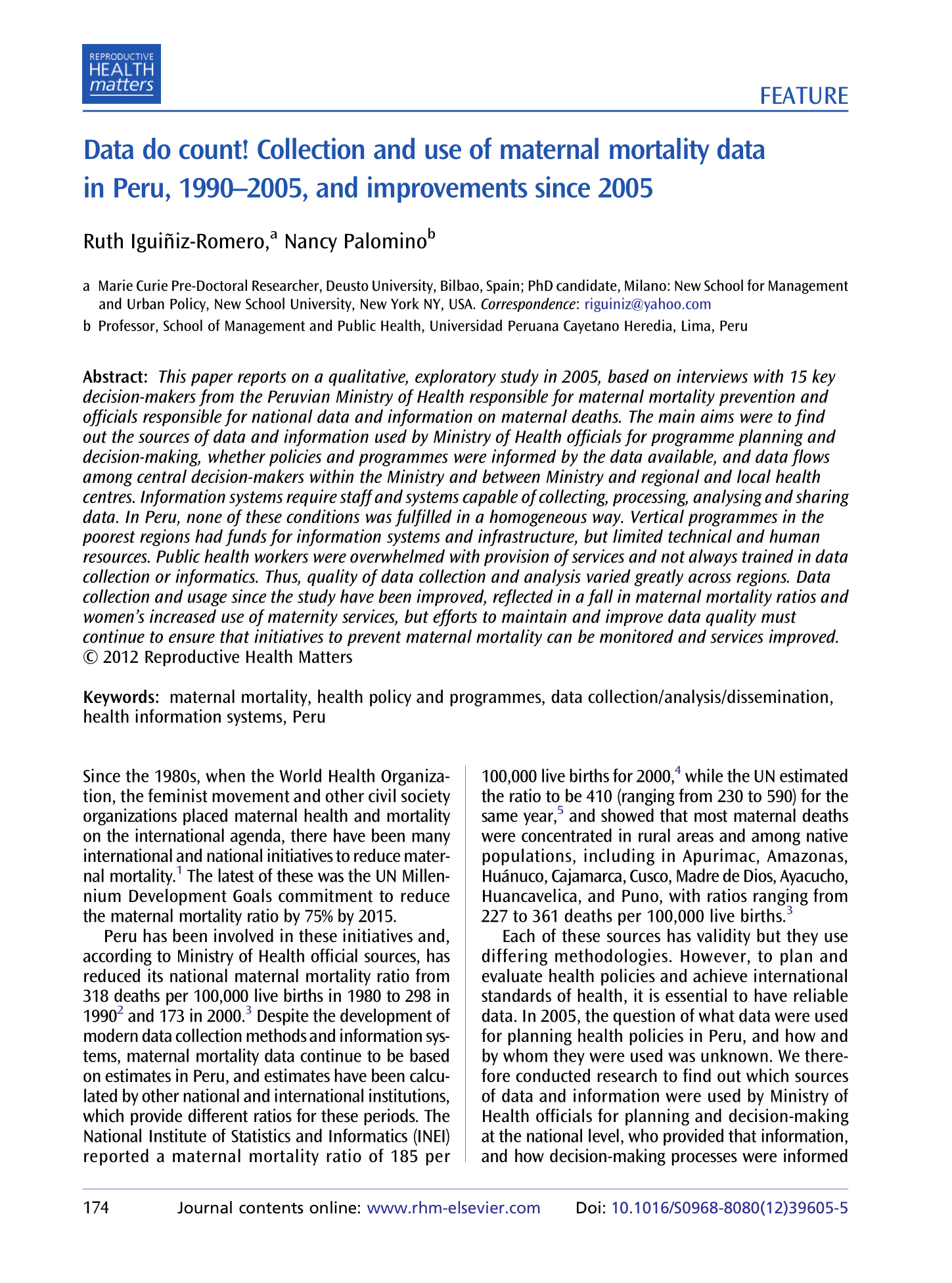|
Iguiñiz-Romero, Ruth y Palomino, Nancy Resumen:This paper reports on a qualitative, exploratory study in 2005, based on interviews with 15 key decision-makers from the Peruvian Ministry of Health responsible for maternal mortality prevention and officials responsible for national data and information on maternal deaths. The main aims were to find out the sources of data and information used by Ministry of Health officials for programme planning and decision-making, whether policies and programmes were informed by the data available, and data flows among central decision-makers within the Ministry and between Ministry and regional and local health centres. Information systems require staff and systems capable of collecting, processing, analysing and sharing data. In Peru, none of these conditions was fulfilled in a homogeneous way. Vertical programmes in the poorest regions had funds for information systems and infrastructure, but limited technical and human resources. Public health workers were overwhelmed with provision of services and not always trained in data collection or informatics. Thus, quality of data collection and analysis varied greatly across regions. Data collection and usage since the study have been improved, reflected in a fall in maternal mortality ratios and women’s increased use of maternity services, but efforts to maintain and improve data quality must continue to ensure that initiatives to prevent maternal mortality can be monitored and services improved. |

